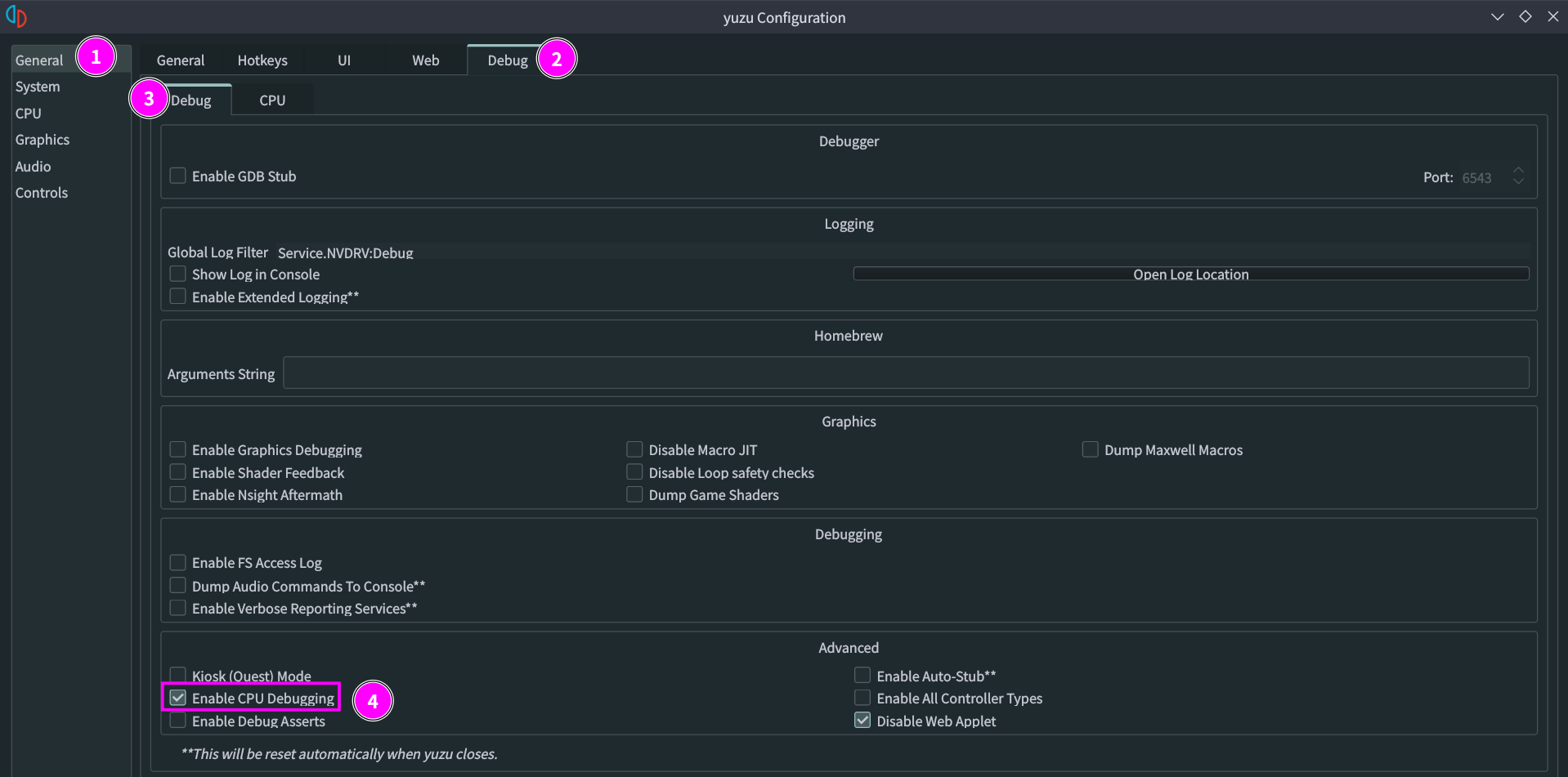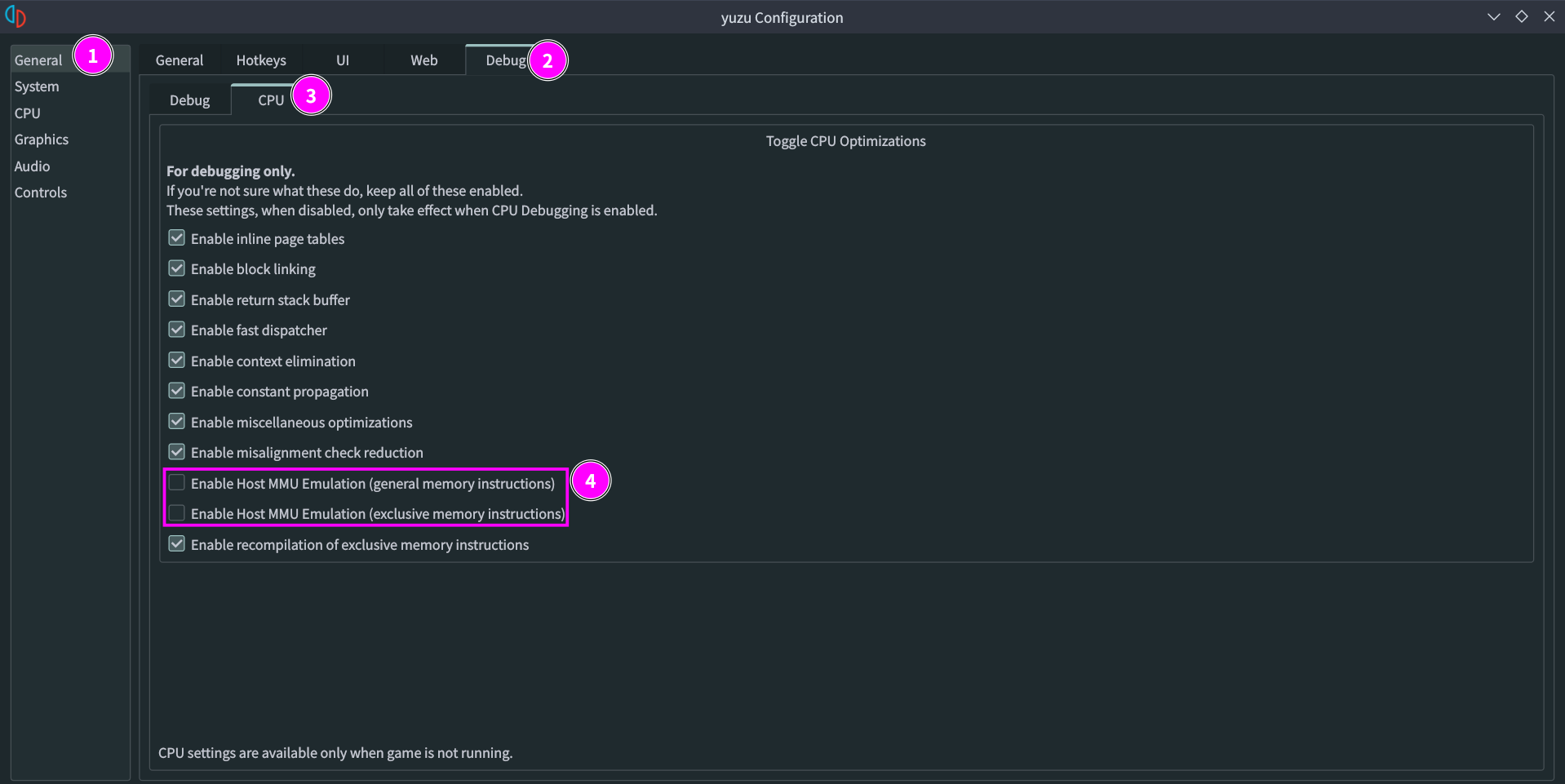Windows
- added summary Overview section for MSVC
- consolidated Visual Studio settings screens for C++ etc at the beginning (instead of providing them in the CMake GUI steps if they get an error)
- added notes to dependencies, to add them to Windows PATH if they ask for it
- moved the MSVC command line section (from the very bottom of the page under the Clion section), to between "dependency installation" and the "GUI method of building"
- prioritizing MSVC command line over GUI since it's much shorter and easier if all dependencies are installed correctly
- moved/duplicated contents of MSVC "Clone with Git" section into both the "MSVC command line" and "MSVC GUI" sections, so all steps are together for each and not split up
- changed some header sizes for better separation
- added a large separator bar area between MSVC, MinGW and CLion sections, and smaller separator bar areas between the three main sections of MSVC for readability
- added a specific repo-to-use note to the Clion cloning section
- corrected repo urls
Linux/Debian
- added flatpak build section at the top, labeled the existing as native builds
- added qttools5-dev and libva-dev to dependency cut and paste (were needed to compile on Debian)
- corrected repo url
MacOS
- removed redundant to-do items
- corrected repo url
Android
- corrected repo url
Reviewed-on: http://vub63vv26q6v27xzv2dtcd25xumubshogm67yrpaz2rculqxs7jlfqad.onion/torzu-emu/torzu/pulls/65
Co-authored-by: anon <anon@noreply.localhost>
Co-committed-by: anon <anon@noreply.localhost>
7.3 KiB
Flatpak Build
Install flatpak and flatpak-builder:
- Arch / Manjaro:
sudo pacman -Syu --needed flatpak flatpak-builder
- Debian / Ubuntu / Linux Mint:
sudo apt-get install flatpak flatpak-builder
- Fedora:
sudo dnf install flatpak flatpak-builder
Install flatpak dependencies:
flatpak install org.kde.Sdk//5.15-23.08 io.qt.qtwebengine.BaseApp//5.15-23.08
Clone the torzu-flatpak repo and dependencies:
git clone --depth 1 --recursive https://github.com/litucks/onion.torzu_emu.torzu.git
Enter the cloned directory and run build script:
cd onion.torzu_emu.torzu && ./build.sh
Resulting torzu.flatpak will be in the same directory as the build script.
To install:
flatpak install torzu.flatpak
Native Builds
Dependencies (copy/paste commands provided after)
You'll need to download and install the following to build yuzu:
- GCC v11+ (for C++20 support) & misc
- This page is being updated as we transition to GCC 11
- If GCC 12 is installed, Clang v14+ is required for compiling
- CMake 3.15+
The following are handled by yuzu's externals:
If version 5.15.2 is not already installed, pre-compiled binaries for Qt 5.15.2 will be downloaded from here automatically by CMake:
- Qt 5.15+
All other dependencies will be downloaded by vcpkg if needed:
- Boost 1.79.0+
- Catch2 2.13.7 - 2.13.9
- fmt 8.0.1+
- lz4 1.8+
- nlohmann_json 3.8+
- OpenSSL
- ZLIB 1.2+
- zstd 1.5+
If an ARM64 build is intended, export VCPKG_FORCE_SYSTEM_BINARIES=1.
Dependencies are listed here as commands that can be copied/pasted. Of course, they should be inspected before being run.
-
Arch / Manjaro:
sudo pacman -Syu --needed base-devel boost catch2 cmake ffmpeg fmt git glslang libzip lz4 mbedtls ninja nlohmann-json openssl opus qt5 sdl2 zlib zstd zip unzip- Building with QT Web Engine needs to be specified when running CMake with the param
-DCMAKE_CXX_FLAGS="-I/usr/include/qt/QtWebEngineWidgets"with qt5-webengine installed. - GCC 11 or later is required.
-
Debian / Ubuntu / Linux Mint:
sudo apt-get install autoconf cmake g++-11 gcc-11 git glslang-tools libasound2 libboost-context-dev libglu1-mesa-dev libhidapi-dev libpulse-dev libtool libudev-dev libxcb-icccm4 libxcb-image0 libxcb-keysyms1 libxcb-render-util0 libxcb-xinerama0 libxcb-xkb1 libxext-dev libxkbcommon-x11-0 libxxhash-dev mesa-common-dev nasm ninja-build qtbase5-dev qtbase5-private-dev qttools5-dev qtwebengine5-dev qtmultimedia5-dev libmbedtls-dev catch2 libfmt-dev liblz4-dev nlohmann-json3-dev libzstd-dev libssl-dev libavfilter-dev libavcodec-dev libswscale-dev libva-dev- Debian 11 (Bullseye), Ubuntu 22.04, Linux Mint 20 or later is required.
- Users need to manually specify building with QT Web Engine enabled. This is done using the parameter
-DYUZU_USE_QT_WEB_ENGINE=ONwhen running CMake. - Users need to manually specify building with GCC 11. This can be done by adding the parameters
-DCMAKE_C_COMPILER=gcc-11 -DCMAKE_CXX_COMPILER=g++-11when running CMake. i.e. - Users need to manually disable building SDL2 from externals if they intend to use the version provided by their system by adding the parameters
-DYUZU_USE_EXTERNAL_SDL2=OFF
git submodule update --init --recursive
cmake .. -GNinja -DCMAKE_C_COMPILER=gcc-11 -DCMAKE_CXX_COMPILER=g++-11
-
Fedora:
sudo dnf install autoconf ccache cmake fmt-devel gcc{,-c++} glslang hidapi-devel json-devel libtool libusb1-devel libzstd-devel lz4-devel nasm ninja-build openssl-devel pulseaudio-libs-devel qt5-linguist qt5-qtbase{-private,}-devel qt5-qtwebengine-devel qt5-qtmultimedia-devel speexdsp-devel wayland-devel zlib-devel ffmpeg-devel libXext-devel- Fedora 32 or later is required.
- Due to GCC 12, Fedora 36 or later users need to install
clang, and configure CMake to use it via-DCMAKE_CXX_COMPILER=clang++ -DCMAKE_C_COMPILER=clang - CMake arguments to force system libraries:
- SDL2:
-DYUZU_USE_BUNDLED_SDL2=OFF -DYUZU_USE_EXTERNAL_SDL2=OFF - FFmpeg:
-DYUZU_USE_EXTERNAL_FFMPEG=OFF
- SDL2:
- RPM Fusion (free) is required to install
ffmpeg-devel
-
Gentoo:
- **Disclaimer**: this dependency list was written by a novice Gentoo user who first set it up with a DE, and then based this list off of the Fedora dependency list. This may be missing some requirements, or includes too many. Caveat emptor.
emerge --ask app-arch/lz4 dev-libs/boost dev-libs/hidapi dev-libs/libzip dev-libs/openssl dev-qt/linguist dev-qt/qtconcurrent dev-qt/qtcore dev-util/cmake dev-util/glslang dev-vcs/git media-libs/alsa-lib media-libs/opus media-sound/pulseaudio media-video/ffmpeg net-libs/mbedtls sys-libs/zlib x11-libs/libXext- GCC 11 or later is required.
- Users may need to append
pulseaudio,bindistandcontextto theUSEflag.
Cloning yuzu with Git
from Codeberg repo (the --recursive option automatically clones the required Git submodules):
git clone --depth 1 --recursive https://notabug.org/litucks/torzu.git
cd torzu
from Torzu repo (assuming Tor is installed as a service):
git -c http.proxy=socks5h://127.0.0.1:9050 clone --depth 1 http://vub63vv26q6v27xzv2dtcd25xumubshogm67yrpaz2rculqxs7jlfqad.onion/torzu-emu/torzu.git
cd torzu
git submodule update --init --recursive
Building yuzu in Release Mode (Optimized)
If you need to run ctests, you can disable -DYUZU_TESTS=OFF and install Catch2.
mkdir build && cd build
cmake .. -GNinja -DYUZU_USE_BUNDLED_VCPKG=ON -DYUZU_TESTS=OFF
ninja
sudo ninja install
Optionally, you can use cmake-gui .. to adjust various options (e.g. disable the Qt GUI).
Building yuzu in Debug Mode (Slow)
mkdir build && cd build
cmake .. -GNinja -DCMAKE_BUILD_TYPE=Debug -DYUZU_USE_BUNDLED_VCPKG=ON -DYUZU_TESTS=OFF
ninja
Building with debug symbols
mkdir build && cd build
cmake .. -GNinja -DCMAKE_BUILD_TYPE=RelWithDebInfo -DYUZU_USE_BUNDLED_VCPKG=ON -DYUZU_TESTS=OFF
ninja
Running without installing
After building, the binaries yuzu and yuzu-cmd (depending on your build options) will end up in build/bin/.
# SDL
cd build/bin/
./yuzu-cmd
# Qt
cd build/bin/
./yuzu
Debugging
cd data
gdb ../build/bin/yuzu # Start GDB
(gdb) handle SIGSEGV nostop # Disable SIGSEGV exceptions, which are used by yuzu for memory access
(gdb) run # Run yuzu under GDB
<crash>
(gdb) bt # Print a backtrace of the entire callstack to see which codepath the crash occurred on

